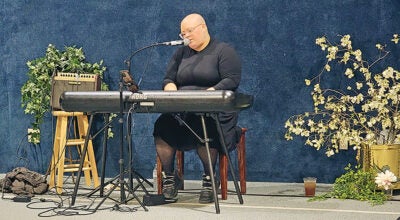Debates not a done deal: Some candidates duck the underdogs
Published 2:24 pm Thursday, December 24, 2015
COLUMBUS (AP) — Not all political debates have the panache of a presidential showdown. That’s one reason front-runners in races for Congress and governor across the U.S. sometimes refuse to debate their underdog challengers.
Empty lecterns and blow-up ducks — for candidates who “duck” debates — have been used to flag candidates who refuse to debate opponents, an increasingly common practice among front-runners in recent elections from Maryland to Florida and Alabama to California.
One instance happening now is in Ohio’s closely watched U.S. Senate primary, where former Gov. Ted Strickland says he’s too focused on winning the general election against incumbent Republican Rob Portman to debate his Democratic primary challenger.
Gov. John Kasich has been on both sides of the debate divide. He refused to debate the Democrats’ gubernatorial nominee when that candidate’s campaign tanked but then fought tooth and nail this year as a lesser known presidential candidate to secure a spot in the Republican debates.
Advocates say a well-run debate benefits voters — and democracy.
J. Scott Wunn, executive director of the National Speech and Debate Association, equates holding an election without a debate to naming a college football champion without playing a game. Stump speeches are practices; debates are games.
“Somehow there has to be the opportunity for them to interact in a competitive exchange of ideas so that it allows them to separate themselves,” Wunn said.
But he said just as a champion team is toppled only in a game, not a practice, a No. 1 candidates takes more political risks in a debate than his or her challenger.
“Those who are well positioned to win are often in the driver’s seat, and often it doesn’t hurt them to avoid the debate,” said University of Dayton political scientist Dan Birdsong.
When U.S. Sen. Jim Inhofe, a long-serving Oklahoma Republican, refused to debate in 2014, his Democratic challenger Matt Silverstein of the Choctaw Nation criticized the 20-year Senate veteran.
“It’s Senator Inhofe’s job as a U.S. senator to participate in intense debates, and if he can’t even have one in the comfort of his own community, what does that tell us?” he said at the time. “It means he thinks he owns the seat.”
Strickland challenger P.G. Sittenfeld, a city councilman from Cincinnati, also suggests his high name ID and strong early poll showing have made him feel entitled. “He almost seems annoyed that this is a campaign and not a coronation,” says Sittenfeld’s spokesman Dale Butland.
Strickland characterized Sittenfeld’s repeated requests as a distraction.
“There are so many differences between Senator Portman and myself, I simply do not want to use my time and energies doing anything that will distract me from drawing a contrast between me and the fellow that I’m going to be running against next November,” he said.
Wunn said diligent voters want strong idea exchanges and question whether to trust a front-runner who refuses to debate.
“Why would anyone refuse to do that unless there was some negative reason?” he said.
Maryland Lt. Gov. Anthony Brown, a front-runner in last year’s gubernatorial primary, declined to attend a debate that was televised. The television station put an empty lectern bearing his name in the middle of the stage between his two challengers. Though Brown won the primary, he lost the general election in a state where Democratic voters outnumber Republicans two to one.
Yet incumbent governors of both parties in states including Ohio, Alabama, Mississippi California and New York have declined debates with seeming little effect.
When Alabama Gov. Robert Bentley refused to debate his Democratic challenger last year, Parker Griffith erected a giant inflatable duck in downtown Montgomery with a sign that Bentley was “ducking” a debate. Bentley won the election.





